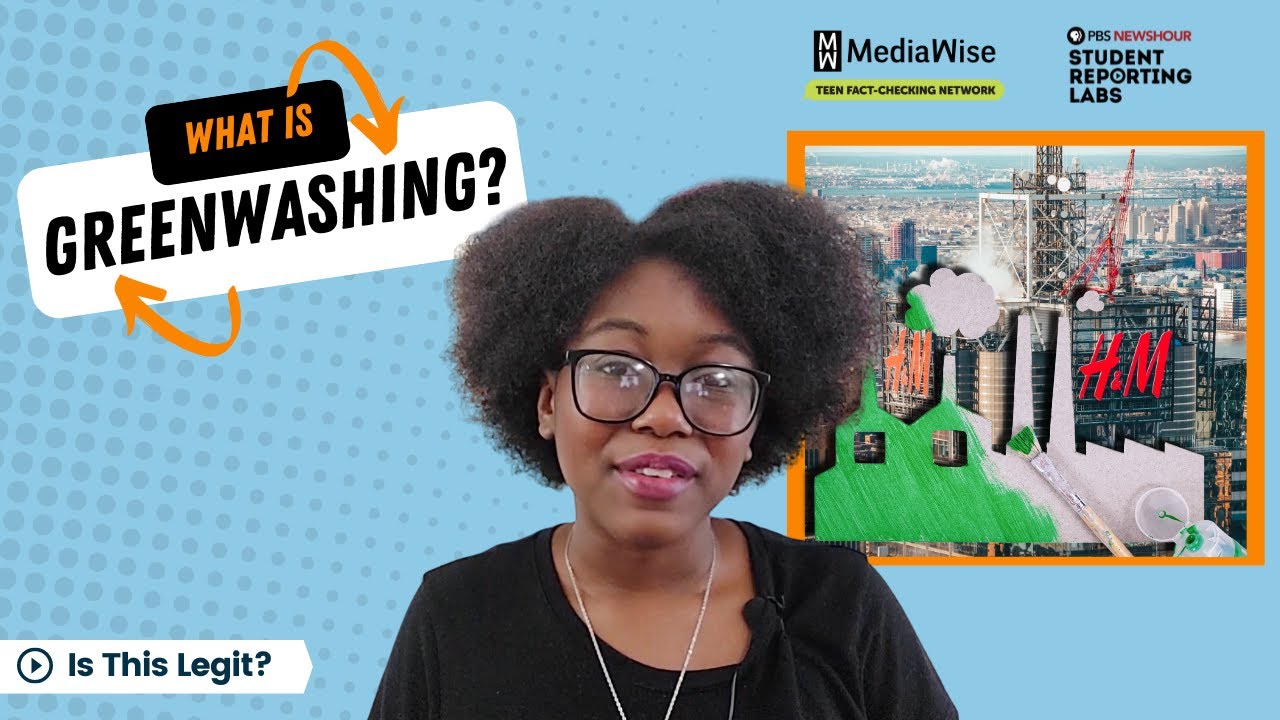O que é greenwashing, como identificar e não cair?
Summary
TLDRThis video discusses the growing issue of greenwashing, where companies falsely claim to be environmentally friendly. It explains how businesses use misleading labels, vague eco-claims, and false certifications to deceive consumers. Highlighting a study by IDEC, the video reveals that many products marketed as sustainable are actually not, and encourages viewers to research brands and demand transparency. The speaker emphasizes the power of consumers to challenge greenwashing and urges a shift towards regenerative practices, urging companies to go beyond sustainability and truly benefit the environment.
Takeaways
- 😀 Greenwashing is a deceptive marketing practice where companies claim to be environmentally friendly without real actions behind it.
- 😀 The term 'greenwashing' comes from the idea of 'green' being used to make a product appear sustainable, much like money laundering is used to clean up illegal money.
- 😀 Sustainability is becoming a hot topic, with consumers increasingly demanding transparency from brands regarding their environmental impact.
- 😀 A 2009 Nielsen survey found that 42% of Brazilian consumers were concerned about reducing their environmental impact, and 30% read labels to assess sustainability.
- 😀 The Instituto de Defesa do Consumidor (IDEC) conducted a study revealing that nearly half of products marketed as environmentally responsible were greenwashing.
- 😀 Common greenwashing tactics include using misleading claims, vague environmental certifications, and visuals of nature to mislead consumers into thinking products are eco-friendly.
- 😀 Many products claim to be free from harmful substances (like CFCs) or natural but still contain damaging ingredients, which doesn't make them truly sustainable.
- 😀 Brands often promote products as eco-friendly or natural but fail to acknowledge harmful side effects, such as heavy metals in cosmetics or toxic chemicals in cleaning products.
- 😀 Companies frequently misuse terms like 'ecological' or 'good for the environment' without clear evidence or certification, making these claims unreliable.
- 😀 To combat greenwashing, consumers are advised to research brands' sustainability histories, look for genuine eco-certifications, and question suspicious claims about environmental benefits.
Q & A
What is greenwashing?
-Greenwashing is when companies make false or misleading claims about their environmental efforts in order to appear more sustainable or eco-friendly, even if they aren't taking real action to protect the environment.
Why is greenwashing becoming more prevalent?
-Greenwashing is growing because consumers are increasingly concerned about sustainability and are making purchasing decisions based on the environmental impact of products. Companies are trying to capitalize on this trend without necessarily adopting genuine sustainable practices.
What are some common tactics used in greenwashing?
-Common greenwashing tactics include vague environmental claims, misleading labels, using eco-friendly imagery without real substance, and highlighting one small positive aspect while ignoring the larger negative impacts of a product.
Can you give an example of greenwashing in the beauty industry?
-In the beauty industry, greenwashing can be seen when products claim to be 'natural' or 'organic,' but still contain harmful chemicals or ingredients that are not environmentally friendly or beneficial to health.
What did the 2009 Nielsen study reveal about consumer behavior in Brazil?
-The study found that 42% of Brazilian consumers were concerned about reducing their environmental impact through their purchases, and 30% were actively reading product labels to check for sustainability claims.
What is the role of eco-certifications in greenwashing?
-Eco-certifications are sometimes used by companies to create the illusion of sustainability, but some certifications may not be reliable or may be self-issued, meaning they don't guarantee real environmental responsibility.
What does the term 'hidden trade-offs' mean in the context of greenwashing?
-Hidden trade-offs refer to when a product highlights one small environmentally friendly feature, like using recycled plastic, while ignoring the larger harmful impacts it might have, such as using toxic chemicals in the production process.
How can consumers spot greenwashing on product labels?
-Consumers should look for vague terms like 'eco-friendly' or 'green' without any clear evidence or certifications. They should also be cautious of excessive eco-imagery, such as leaves or water droplets, which don't necessarily indicate true sustainability.
What advice is given for consumers to avoid being tricked by greenwashing?
-Consumers should research companies and their sustainability practices, read product labels carefully, ask for proof of claims, and choose products from brands that demonstrate long-term environmental commitment.
Why is it important for consumers to understand the distinction between sustainability and regeneration?
-Sustainability alone is no longer enough; the focus is shifting towards regenerative practices that actively restore and improve the environment. Consumers should look for companies that prioritize regeneration rather than just minimizing harm.
Outlines

Dieser Bereich ist nur für Premium-Benutzer verfügbar. Bitte führen Sie ein Upgrade durch, um auf diesen Abschnitt zuzugreifen.
Upgrade durchführenMindmap

Dieser Bereich ist nur für Premium-Benutzer verfügbar. Bitte führen Sie ein Upgrade durch, um auf diesen Abschnitt zuzugreifen.
Upgrade durchführenKeywords

Dieser Bereich ist nur für Premium-Benutzer verfügbar. Bitte führen Sie ein Upgrade durch, um auf diesen Abschnitt zuzugreifen.
Upgrade durchführenHighlights

Dieser Bereich ist nur für Premium-Benutzer verfügbar. Bitte führen Sie ein Upgrade durch, um auf diesen Abschnitt zuzugreifen.
Upgrade durchführenTranscripts

Dieser Bereich ist nur für Premium-Benutzer verfügbar. Bitte führen Sie ein Upgrade durch, um auf diesen Abschnitt zuzugreifen.
Upgrade durchführenWeitere ähnliche Videos ansehen
5.0 / 5 (0 votes)






